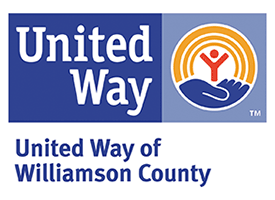The Importance of Trauma Informed Care

At some point in our lives, we will all experience trauma — an event, multiple events, or a set of circumstances that feels physically or emotionally harmful or threatening and that causes intense physical and psychological stress responses.
And while we will all struggle in the aftermath of trauma, children may face particularly daunting and long-term challenges as a result of traumatic experiences. As a result, it is especially important for organizations like Big Brothers Big Sisters, that aim to support the health and well-being of children, to work toward an understanding of how children are uniquely impacted by trauma and how we can meet their needs accordingly.
According to research conducted by Julie Novak, Vice President for Youth Protection at Big Brothers Big Sisters of America, “Severe and pervasive negative experiences during childhood can actually impact the developing architecture of the brain and functioning of the immune system…leading to significant behavioral challenges and health risks as adolescents and adults.”
These challenges might include difficulty with emotional regulation, cognitive processing, setting goals and problem-solving.
However, Novak’s research also shows that the presence of a loving, caring adult can have a significant “buffering” effect, helping children cope and recover from traumatic experiences.
“Youth mentoring programs have an important role to play in building resilience in youth—offering hope through promoting healing and building protective factors,” she says. “When the adults providing support to traumatized children have an understanding of what a child has been through, they can be empathetic even when the child is displaying negative behaviors.”
We strive to keep this in mind here at BBBS, where we serve children with a variety of experiences, needs and vulnerabilities, some of whom may have already experienced trauma in their lives. Recognizing the potential impacts of trauma helps us shift our perspective away from asking “What is wrong with you?” to “What happened to you?”.
“A trauma-informed staff member or mentor can better meet a child where they are,” says Ellen Harsch, Director of Enrollment. “They can learn to see the challenges or behaviors that result from traumatic life experiences as opportunities to support the development of a child’s coping and life skills.”
One helpful resource developed by Big Brothers Big Sisters of America that describes some practical tips adults can use when spending time with a child who has experienced trauma is their “Trauma-Informed Care Roadmap”. It includes helpful advice that can be remembered by the acrostic “CLICC”:
Comfort – Be patient and calm. When children are not under stress, try practicing activities that can help them cope when they do feel stress.
Listen – Be open to their ideas and opinions. Ask open-ended questions that require more than a yes or no answer. Ask clarifying questions if you’re unsure of what they meant.
Inspire – Ask them who their role models are and what they like about them. Help them focus on what qualities they admire in other people.
Collaborate – Engage them with a step-by-step problem-solving process until you reach a solution.
Celebrate – Encourage trial and error problem-solving skills to teach them how to persevere. Celebrate the process and the effort even when things don’t go as planned.
Overall, a sensitivity to how children are uniquely impacted by difficult circumstances and events and how we can strive to meet their needs is a valuable part of our toolkit as we work to create successful mentoring matches in Central Texas.
“Trauma-Informed Care is such a critical need of all of our matches,” says Joe Strychalski, Vice President of Programs at BBBSCTX. “We’re excited to continue offering training that increases knowledge and awareness in this area for our staff and match participants in order to better support our young people.”
Learning More
https://www.dfps.state.tx.us/Training/Trauma_Informed_Care/default.asp – Online training to assist families, caregivers and social service providers in fostering greater understanding of trauma informed care and child traumatic stress. Available in both English and Spanish. 2 hrs.
Big Brothers Big Sisters of America – https://www.bbbs.org/childhood-trauma/
US Dept. of Health & Human Services
– https://www.cdc.gov/cpr/infographics/6_principles_trauma_info.htm
– https://www.traumainformedcare.chcs.org/what-is-trauma-informed-care/
Center for Parent Information & Resources
https://www.parentcenterhub.org/trauma-informed-care/#websites








